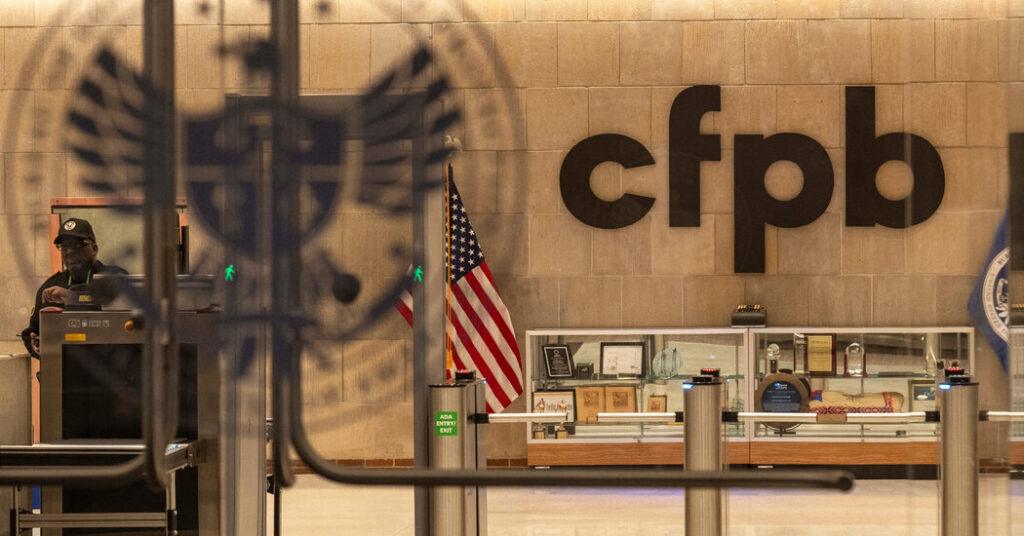In the Trump administration’s fight to crack down on the Consumer Financial Protection Bureau, it deployed a new weapon this week: a novel legal argument that funding the agency is illegal.
Unlike most federal agencies, which are funded by congressional appropriations, the consumer bureau gets its money from the Federal Reserve. Quarterly, the agency’s director requests from the Federal Reserve the funds the office needs to operate.
Russell T. Vought, the White House budget director, who also serves as acting director of the consumer bureau, has not requested any funding this year, leaving the agency with less and less cash to pay its roughly 1,400 workers.
In a legal filing Monday, the bureau warned that it would run out of money early next year and said it would not be able to get more from the Federal Reserve.
The filing included a memo sent to Vought on Friday by the Justice Department’s Office of Legal Counsel that declared the agency’s flow of funds illegal. The 2010 law that created the office mandated it draw its funding from the “combined earnings” of the Federal Reserve. Lawmakers intended that funding structure to insulate the independent agency from partisan changes in Congress.
But the Federal Reserve has operated at a loss since 2022, leaving it with “no revenue” to spend in the office, the Justice Department said.
“If the Fed doesn’t make profits, it can’t transfer money to the CFPB,” T. Elliot Gaiser, the deputy attorney general who heads the influential Office of General Counsel, wrote in the memo.
That argument has been promulgated for years in conservative legal circles. Versions of it have been published by the American Enterprise Institute, a conservative think tank, and the Federalist Society, a conservative legal group.
Sen. Elizabeth Warren, a Massachusetts Democrat who helped create the consumer bureau, called the argument a “fringe theory” and urged federal judges to reject it.
“This absurd move by Russ Vought is clearly illegal,” he said.
The consumer bureau has requested (and received) more than $1 billion from the Federal Reserve since 2022. Gaiser’s memo said the bureau, under Vought’s leadership, “now takes a different view than it did in 2024” on the legality of that funding.
Vought destroyed much of the consumer bureau’s work and tried to lay off more than 90 percent of its staff. Federal judges suspended that plan, leaving most of the agency’s workforce intact, but Vought halted most office operations and barred many employees from carrying out their regular duties.
Only Congress has the power to abolish the agency, and the Justice Department has argued in court that the Trump administration only intends to shrink the office, not eliminate it. But Vought has openly contradicted those claims and said it is working to close the office.
“We don’t have anyone working there except our Republican appointees and some professionals who are carrying out legal responsibilities while we close the agency,” Vought said last month on the “Charlie Kirk Show” podcast. “We want to get it out there, and we’ll probably get it done in the next two or three months.”
The new funding skirmish has intensified a liquidity crisis at the office, which was already facing the likelihood of steep staff cuts to stay within a reduced budget limit.
President Trump’s domestic policy bill lowered the bureau’s operating budget cap to 6.5 percent of the Federal Reserve’s operating expenses, from 12 percent. That would limit the amount the agency can request to about $446 million for fiscal year 2025, the Congressional Research Service estimated, far less than the nearly $730 million the agency received from the Federal Reserve in 2024.




